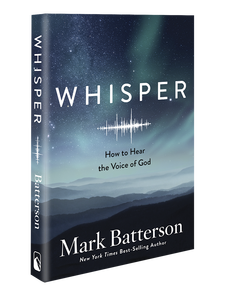This blog comes from Liam, an assistant community librarian based in the east of Leeds.
Sci-fi has been unfairly maligned within the literary community for many decades, mainly by folk who believe literature equals being beaten around the head with a 19th Century thesaurus. Those of us who actually read it know that it is in fact an endless source of creativity and imagination, a way of reflecting today’s society through futuristic funhouse mirrors, and an important and compelling method of examining what’s ahead. It isn’t just aliens and spaceships and planets with names like Zygolythkah-7. Not only that, anyway. So I have compiled a list of sci-fi novels, some more well-known than others, but all of which I believe would stand up against any classic 20th Century novels. I could have talked about so many more, but hopefully this will whet your appetite!
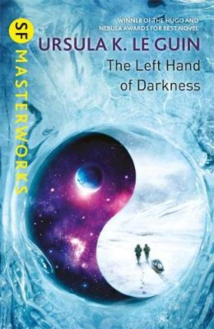 The Left Hand of Darkness by Ursula K. Le Guin
The Left Hand of Darkness by Ursula K. Le Guin
No list of classic sci-fi would be complete without Ursula K. Le Guin, a true heavyweight of the genre. The Left Hand of Darkness won the Hugo and the Nebula Award, and remains as popular today as it was in 1969, when it was published.
Genly Ai, an envoy for Ekumen – a coalition of humanoid species – is sent to Gethen to encourage its leaders to join the union. He spends two years trying to persuade Karhide and Orgoreyn, the two dominant nations, to join, but encounters scepticism from both. Though capable of a type of telepathic communication, he struggles to understand the Gethen concept of ‘shifgrethor’, a system of social rules and status, and the effeminate mannerisms of many of the ‘male’ folk he meets. His task becomes all the more difficult as both nations distrust one another, and he gets caught in the middle.
The Left Hand of Darkness is an early example of feminist sci-fi, and explores themes of androgyny, sexuality and gender and their effects on society, particularly when you take gender away. Genly, for example, is unable to understand how his sexuality affects his way of thinking, and thus finds it incredibly difficult to communicate with the ambisexual Gethenians, who in turn find his motivations hard to understand. Another fascinating aspect of the story is the idea of ‘shifgrethor’, a complex system used by Gethenians extensively with regards to their society. So much of this story is as relevant today as it was when it was written. A particular passage about the dangers of patriotism rings true, especially with what’s happening in the world at the moment: “No, I don’t mean love, when I say patriotism. I mean fear. The fear of the other. And its expressions are political, not poetical: hate, rivalry, aggression.” Another longer part about nations and borders should be mandatory reading. In fact, the entire book should be!
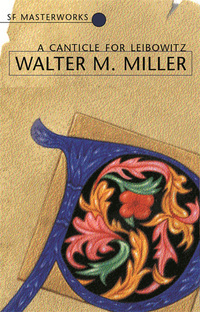 A Canticle for Leibowitz by Walter M. Miller
A Canticle for Leibowitz by Walter M. Miller
I’ll admit it, I’m a sucker for anything post-apocalyptic. Oryx and Crake, The Road, Earth Abides, Station Eleven, I Am Legend, Greybeard, The Gone-Away World… the list goes on. Show me society collapsing and I’m all over it. I chose ‘A Canticle for Leibowitz’ for this blog as it is widely regarded as one of the finest examples, and hasn’t been out of print since it was first published in 1960. It’s the only novel Walter M. Miller ever wrote, which I guess proves the old adage of quitting while you’re ahead.
At the beginning we follow a religious sect that seems to live in the Middle Ages, but as we progress, we learn that this desolate landscape is actually 600 years after a terrible nuclear war. One of the few survivors, Isaac Edward Leibowitz, collected and stored any books he could find. Centuries later, they have become the basis for a new religion called the ‘Albertian Order of Leibowitz’. The story follows humanity as it tries to rebuild civilisation and is split into three parts, with a six-century time-jump in between. Much of the novel focuses on the aspects of religion versus state, and cyclical history – how we’re doomed to repeat it if we fail to learn from our mistakes. A true masterpiece which is well worth a read.
Lilith’s Brood (The Xenogenesis Trilogy) by Octavia E. Butler
Though less so today, sci-fi in the past was often a reserve for straight white male authors. Octavia E. Butler, an African-American lesbian, broke that mould and helped pave the way for a more diverse representation of voices in this genre. Her Xenogenesis trilogy – Dawn, Adulthood Rights, and Iago, recently released as an omnibus titled Lilith’s Brood – was written between 1987-89. Nuclear war has left the earth uninhabitable and humanity on the brink of extinction. The Oankili, an alien race, takes the handful of survivors left and holds them in suspended animation while they make the earth safe for life once more. Lilith Iyapo, our hero, is one of the first to be awoken aboard her new home, and is trained to help the other survivors come to terms with this new earth. The Oankili, however, know what the humans cannot accept – that humanity holds an innate self-destructive gene manifested in a need for hierarchical systems that will once again lead to their downfall – and wish to interbreed, removing this gene and thus allowing humanity the chance to flourish. But some of the survivors believe these hybrid offspring won’t truly be human, and will only cause the extinction of humankind. Some rebel…
Lilith’s Brood is a fantastic story about human nature, biological determinism, gender, sexuality and race. It could be seen as an allegory of immigration and integration that we see in society today. Though it could be argued that Butler doesn’t hold humanity in much regard, her characters are nevertheless brilliantly written and believable, the prose is tight and efficient, and the ideas are out of this world. Lilith herself is a true feminine hero, an archetype we need to see more of in sci-fi, and all genres.
 Sirius by Olaf Stapledon
Sirius by Olaf Stapledon
One of our librarians, Chris, recommended Sirius to me. Though the plot – a scientist breeds a super-intelligent dog with the ability to speak – sounds like it could’ve been lifted from a straight-to-DVD flop voiced by Rob Schneider, the result is actually a poignant study on consciousness, innate nature, the relationships between human and animal, and the fear of the ‘other’.
In rural Wales, a scientist begins using steroids to increase the cognisance of farm dogs. Though most fail, one little pup, Sirius, grows and develops until he holds the intelligence of a human. Born at the same time as the scientist’s daughter Plaxy, the pair forms a tight bond despite their sibling rivalry. While the family tries to keep Sirius’ intelligence a secret, locals soon begin to wonder about the dog’s smart behaviour, and react with fear and hatred. Sirius, neither man nor beast, struggles with his own identity and battles his innate wild nature against his carefully nurtured character.
‘Sirius’ is a remarkable novel by a true sci-fi legend, Olaf Stapledon, who influenced a whole generation of authors such as Arthur C. Clarke, Stanislaw Lem, Brian Aldiss, C.S. Lewis and many more. First published in 1944, its main themes are still just as relevant, and have been explored in other novels such as Flowers for Algernon.
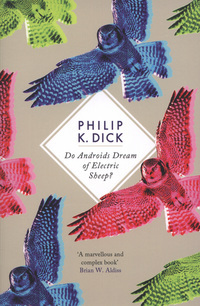 Do Androids Dream of Electric Sheep? by Philip K. Dick
Do Androids Dream of Electric Sheep? by Philip K. Dick
With the recent release of ‘Blade Runner 2049’, and the current TV anthology series ‘Philip K. Dick’s Electric Dreams’, now would be the perfect time to revisit Philip K. Dick’s seminal novel. Set in a future San Francisco, a devastating nuclear war has seen the majority of the surviving population leave Earth to live in off-world colonies. A group of androids, used as labourers throughout the solar system, go rogue, murder their owners, and flee Mars for Earth. It’s down to Rick Deckard, a bounty hunter, to track them down and ‘retire’ them, while the androids hide out with John Isidore, a simpleton who lives in an abandoned apartment building. These androids, though superficially identical to humans, are incapable of empathy. Though they’re trying to learn…
The novel explores what it means to be human; whether it’s our emotions, experiences, souls, or simply biology. It’s darkly funny in places too. Early on, Deckard and his wife use a ‘Penfield Mood Organ’ which feeds them the emotions that their lifeless world has taken away. Deckard’s wife Iran uses this organ for a “six-hour self-accusatory depression.” With the nuclear war devastating animal life most people can only afford mechanical replicas, such as the title’s electric sheep. Yes, the film’s popularity has overshadowed its source, but this remains a noteworthy book and is a must-read for anyone with an inclination to enjoy one of cyberpunk’s original sources.
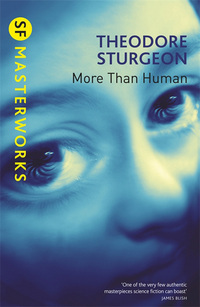 More Than Human by Theodore Sturgeon
More Than Human by Theodore Sturgeon
I put up a Gollancz sci-fi masterworks display at Headingley Library, with their gorgeously cheesy 30s pulp style paperback covers or the yellow with pink lettering hardbacks. This was one I found that I’d never heard of before, and quickly became one of my favourites. Theodore Sturgeon, a New Wave sci-fi author, and one of the few to escape a middle initial, was prolific in his writing – before his death in 1985 he had written over 200 stories. ‘More Than Human’ was one of his most famous and won 1954’s International Fantasy Award for best novel.
The story follows six individuals who, when apart, are societal misfits with weird powers – a 25 year old with a very low IQ who can control minds; two teleporting twin toddlers who can only say “he-he” and “ho-ho”; a severely disabled baby (described in the books as “mongoloid”… different times) who can think like a computer and answer any question; and an 8 year old telekinetic girl. But when these characters come together they form a symbiotic being capable of almost anything – they are“homo gestalt” humanity’s next evolutionary step.
I loved this book so much. From the first chapter where two girls, hidden away from society by their over-protective father, come face to face with the feeble-minded Lone, ending in tragedy, to the accidental creation of an anti-gravity machine while trying to build a tractor that works in both wet and dry conditions. It is truly a story that stays with you long after you’ve finished.
Advertisements Share this:- More

